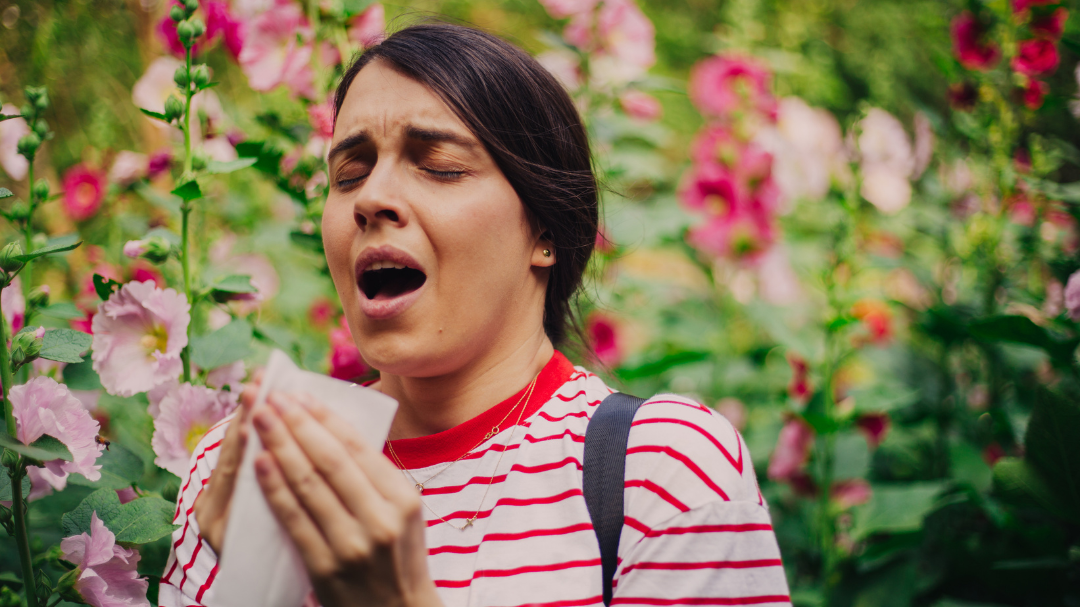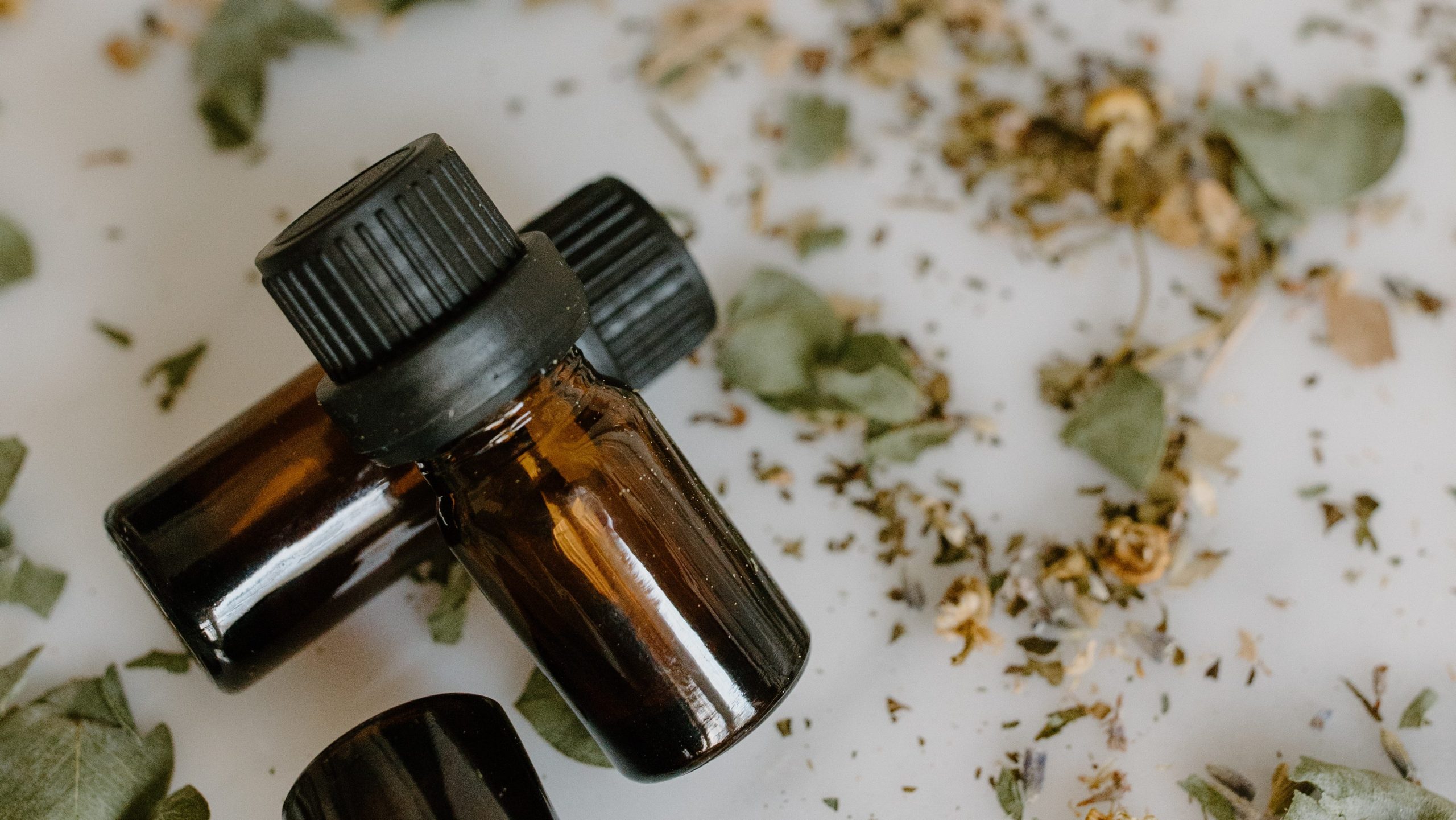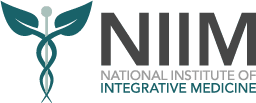
Allergy Action – The Integrative and Environmental Medicine Way
Professor Avni Sali AM MBBS, PhD, FRACS, FACS, FACNEM
For many people, the first signs of spring are accompanied by the return of the familiar symptoms of allergies. Surveys indicate that up to 30% of the population suffers at some time, from an allergy of some type, and the symptoms and triggers are as individual as the person affected. In simple terms, an allergy refers to a situation where the immune system overreacts to a usually harmless substance, causing an exaggerated sensitivity to that substance. Whether the allergies are seasonal, food, environmental, chemical or household substances related, the symptoms can range from mildly annoying to severely debilitating and even life-threatening, particularly if anaphylaxis results. Scientists at Deakin University have deemed Melbourne to be capital of the world for hay-fever allergies with at least one in three people in greater Melbourne suffering from these.
A true allergy is a reaction that causes an immune response in the body and activates antibodies. Intolerances and sensitivities are different in that they do not cause an immune response but instead trigger other processes in the body, causing varied symptom patterns and levels of discomfort. Intolerances can build over time, and with repeated exposures – even at a low level, especially if the body is stressed by infections, stresses or toxins. Hormonal changes, such as those associated with pregnancy, and the presence of other immune illnesses, such as asthma or eczema, may also be associated with increased allergen sensitivity.
For many people, allergies can limit the daily enjoyment of life. Typical symptoms can include coughing, wheezing, sneezing, runny nose, swelling, itching and so on.
In an integrative model of healthcare, the emphasis for any health problem is on cause and not just symptom. Integrative Medicine has much to offer allergy sufferers as it addresses many contributing factors, providing strategies that support the body to heal the source of allergen sensitivities. Healing the body is understood to be even more vital when we consider that allergies can lead to many other diseases in the body. For example, heavy metal toxicities presenting as allergies may also be behind other conditions such as chronic fatigue syndrome, autoimmune conditions, infertility and various endocrine and neurodegenerative diseases.
Although a predisposition to allergies may be inherited genetically and can start in a baby before birth, there are many lifestyle factors that can be addressed to avoid susceptibility. The good news is these factors also contribute to optimal health and disease prevention.
Approaches to managing allergies
Conventional medicine provides several options to manage allergies, these can include:
-
- Antihistamines – which reduce or block the body’s response to histamine.
- Decongestants – temporary relief of nasal congestion.
- Corticosteroids – to control inflammation.
- Eye Drops – to relieve itchy dry symptoms.
- Topical skin creams – containing antihistamine or steroids.
- Epipen – in case of severe anaphylactic episode.
Allergen-specific immunotherapy – a treatment that involves exposing the body to gradually increasing doses of the allergen to desensitize the immune system. During immunotherapy, a person will be given a series of injections that contain tiny amounts of the allergen. This treatment may take place over time and aims to desensitize the body to the allergen. For people with pollen allergies, doctors may recommend sublingual immunotherapy, which involves placing a tablet under the tongue.
A broader approach beyond pharmaceutical-based medicine may include:
Building resistance in babies and children
A low-allergen and varied food diet in pregnant women, and breastfeeding can develop an infant’s resistance for later years. The ‘hygiene hypothesis’ is currently receiving a great deal of attention. It suggests that our obsession with avoiding bacteria has resulted in compromised or underdeveloped immune systems in children and that allowing children to ‘get dirty’ is vital for building resistance. Recent research also indicated that infants living in homes with dogs and cats are less likely to develop allergies to these animals.
Enhance and repair gut health
Mucous membranes line our intestines, respiratory passages and skin and inflammation of these membranes has been shown to contribute to allergies.
Intestinal or gut health, through supporting the presence of healthy bacteria, is being studied extensively for its role in controlling inflammation and enhancing immunity – links are even being found to cancer. A prebiotic and probiotic supplement can be very helpful. A prebiotic is a food that can enhance growth of friendly bacteria, for example, onions, honey and bananas, and a probiotic is friendly bacteria which can be taken as a supplement or found in yoghurt and other fermented foods.
Research is uncovering a new novel approach which looks at restoring the normal balance between immune-system cells that promote allergic reactions and those that suppress them. The concentration is therefore on the Microbiome, the gut microbes. This approach focuses on Probiotics for the treatment of Seasonal-allergic-rhinitis (hay fever).
At the National Institute of Integrative Medicine Research Department, a study where the participants were given a Probiotic, was carried out looking at symptoms, quality of life and immunological factors, in relation to allergies. The study concluded probiotics were effective in reducing hay fever symptoms, such as runny nose and itchy eyes, and improved the quality-of-life and immunological parameters while being well tolerated, showing promise in reducing hay fever symptoms.

Reduce the chemical load in your household
Have you ever thought about how many chemicals you are exposed to every day in the household? Research has shown that on average a woman uses a dozen personal care products containing 168 chemical ingredients every day. Cleaning agents, gardening products, pest control, carpets, paint, mattresses, furniture, cigarette smoke, dust, pollen, animal dander, etc. can harbor toxic chemicals that lead to allergic reactions. Even at ‘supposedly safe levels’ pollutants can be harmful in unexpected ways. For the chemically sensitive, exposure to even very small amounts of a trigger can send the body into response overdrive.
Trying to reduce the household chemical load where possible such as choosing more natural, environmentally friendly cleaning and household products, using more natural personal care products and reducing chemical additives in foods can help reduce toxicity. Preservatives, colours and flavours, and many other chemicals in foods, can be triggers and add unnecessarily to the toxic burden our body has to process. An air filter for your indoor environments may assist in trapping airborne irritants such as pollen, dust, and pet dander. House plants may also offer benefits in purifying the air and producing oxygen, as well as mood-lifting effects of greenery. Plants such as Philodendron, Peace Lily, Snake Plants, Rubber Plants, Aloe Vera and others.
Avoid stress
Stress, which increases cortisol levels, has a major effect in the body. Its oxidating action causes inflammation impacting on cell functioning and immunity, which weakens the body’s defenses and compromises how the body processes toxins and allergens.

Diets, Vitamins & Minerals
Food intolerances and sensitivities are becoming increasingly common.
An elimination diet is used to help people rule out foods that are not well tolerated and may be triggering allergic reactions. Normally foods such as wheat, gluten, nuts, dairy, eggs, shellfish, citrus and others will be removed to test for improvement in symptoms and reintroduced at a later time while testing for symptoms.
Incorporating anti-inflammatory foods, such as turmeric, ginger, and omega-3 fatty acids, can help reduce inflammation. Tomatoes contain lycopene, another antioxidant compound that helps control inflammation, lycopene is more easily absorbed when tomatoes are cooked. Certain foods such as onion peppers, berries and kiwi can help reduce histamine.
-
- Bromelain – is an enzyme found in papaya and pineapple. Bromelain is a natural remedy for swelling or inflammation, especially of the sinuses and following injury or surgery.
- Spirulina – is an algae that grows naturally in mineral-rich waters. There is research evidence to demonstrate anti-allergic protective effects towards allergic rhinitis.
- Stinging Nettle – has natural antihistamine properties to help with allergies.
- Quercetin – is is a polyphenol antioxidant naturally found in cruciferous vegetables, onion family, green tea, and citrus fruits. It is a bioflavonoid that stabilizes the release of histamines, it helps naturally control allergy symptoms. It has also been found to reduce congestion by helping calm hyperactivity of the airways.
- Vitamin C – boosts the immune system. It is a power antioxidant, anti-inflammatory and acts as a natural antihistamine.

Essential Oils for Allergies – inhaling diffused oils
-
- Peppermint – acts an expectorant, unclogging sinuses.
-
- Eucalyptus– has anti-microbial and anti-inflammatory properties. Helps open up the lungs and sinuses, improving circulation and easing symptoms.
-
- Basil – reduces the inflammatory response of allergens.
Other useful essential oils include Lemon, Lavender, Tea Tree and Camomile.
Acupuncture
A review of randomized controlled studies into Acupuncture and allergies, concluded that acupuncture demonstrated positive results for both seasonal and perennial allergic rhinitis.

Nasal Irrigation
Saline nasal rinses can help clear allergens from the nasal passages, providing some relief from congestion and other symptoms.
Mind-body
Practices like yoga, meditation, and deep breathing exercises can help reduce stress and improve overall well-being.
It is always advisable to consult a qualified medical practitioner when seeking ways to deal with any allergies. The Integrative Medicine model is extremely useful in its focus on the unique set of individual circumstances that are contributing to sensitivities. The assessment of total lifestyle, with particular reference to nutrition, environment and stress levels, ensures a treatment plan that has at its highest priority the healing of the body and the cause of symptoms. For this reason, allergies can be approached from a preventative perspective, making a significant improvement to quality of life for sufferers and helping people enjoy life, regardless of the season.
By combining natural health practices with conventional allergy management, you can create a comprehensive approach that addresses both the symptoms and underlying causes of allergies, ultimately leading to a healthier and more comfortable life.
References
Karin Ried, Nikolaj Travica, Yeah Paye, Avni Sali, Effects of a Probiotic Formulation on Seasonal Allergic Rhinitis in Adults—A Randomized Double-Blind Placebo-Controlled Trial: The Probiotics for Hay Fever Trial. Frontiers in Nutrition. May 2022.
Feng S. et al, Acupuncture for the treatment of allergic rhinitis: a systematic review and meta-analysis. Am J Rhinol Allergy 2015.
Cingi C. et al. The effects of spirulina on allergic rhinitis, Eur Arch Otor, 2008.
Jafarinia M. et al Quercetin with the potential effect on allergic diseases. Allergy Asthma Clin Immunol. 2020.
Feng S. et al. Acupuncture for the treatment of allergic rhinitis: a systematic review and meta-analysis. Am J Rhinol Allergy. 2015.
Useful Websites
Home – Melbourne Pollen
Deakin AIRwatch
www.nationalallergycouncil.org.au
www.health.vic.gov.au
